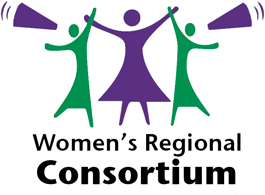Siobhán is nearing the end of a series of focus groups across Northern Ireland looking at the impact of the Cost of Living Crisis on women. These focus groups have been discussing the coping mechanisms that women are using to get through this Crisis and how they are personally impacted by it.
The focus groups look at the price increases which have had the greatest impact on household budgets, borrowing/debt to make ends meet, the impact of the Crisis on physical/mental health, the impact on children, how it has impacted on women’s ability to take part in social activities and what women feel would help them to cope with the increases in the Cost of Living.
So far Siobhán has spoken to over 170 women and hopes to have spoken to 200 women once the focus groups are completed. The top line findings so far are outlined below:
- 178 women surveyed so far
- 30% provide unpaid care for someone
- 29% in receipt of benefits (sick or disabled), 18% in full time work, 19% in receipt of benefits (looking for work)
- 94% felt they were financially worse off than last year
- 93% said they were having difficulty paying their bills as a result of Cost of Living increases
- Top 5 bills they were having difficulty paying:
- Food Shopping
- Electricity
- Gas
- Travel
- Broadband/Internet
Increases in energy bills had the top impact on their household bills with increases in food bills a close second in terms of impact
- 62% were in debt – of those in debt 82% said they had to borrow due to Cost of Living increases
- 64% said they were not able to save recently
- 92% felt that Cost of Living increases had impacted on their physical or mental health or both
- 64% felt that Cost of Living increases had impacted negatively on their children
- 94% felt that Cost of Living increases had impacted on their ability to socialise
Top 5 coping strategies reported:
-
- Buying cheaper products
- Cutting energy use
- Using charity shops/second hand sites
- Relying on friends/family for help
- Reducing care use/use of public transport
- 80% felt cold or hungry or both as a result of Cost of Living increases
- 44% had to use a Foodbank or other charitable help due to Cost of Living increases
Top 5 things that would help them cope better:
-
- Increased help with energy bills
- Cheaper public transport/help with travel costs
- Increases in the value of social security benefits
- Increased help with school costs
- Better paid work
Once the focus group sessions are completed Siobhán will work on analysing the final results and compile these and relevant quotes from women into a final research paper. It is hoped that this will be published before the summer.


